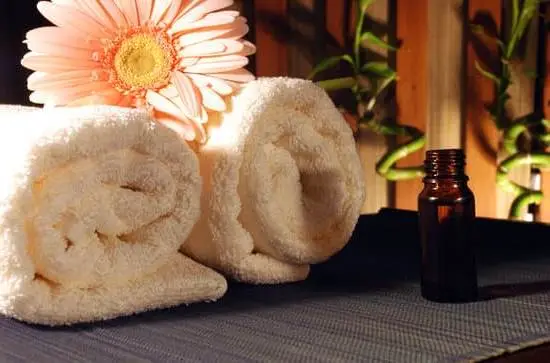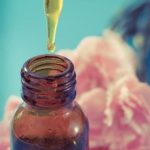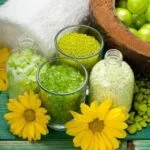Are you looking for the best aromatherapy reference books to expand your knowledge in this fascinating field? Aromatherapy, also known as essential oil therapy, is a holistic healing treatment that uses natural plant extracts to promote health and well-being.
From understanding the science and art behind essential oils to exploring their therapeutic properties, there’s a wealth of information available in reference books for both beginners and experienced practitioners. In this article, we’ll explore the importance of having reliable reference books in the practice of aromatherapy and provide recommendations for top picks to consider for further reading.
Aromatherapy has gained popularity as a complementary therapy for mental, emotional, and physical well-being. Whether you’re curious about blending techniques, essential oil profiles, or safe usage guidelines, having access to quality reference books can be invaluable in expanding your understanding of aromatherapy practices. As with any area of study, it’s important to select the best reference books that align with your learning needs and goals.
In the following sections, we’ll delve into the criteria for selecting the best aromatherapy reference books, providing detailed reviews of top picks suitable for beginners as well as advanced practitioners. We’ll also explore how aromatherapy intersects with skincare and wellness, offering a roundup of additional resources – such as online courses and professional associations – to continue learning about aromatherapy outside of reference books.
So whether you’re just beginning your journey into aromatherapy or seeking advanced knowledge in the field, this article aims to be your definitive guide to finding the best reference books available.
The Art of Essential Oils
When delving into the world of aromatherapy, it is essential to have a good understanding of essential oils and their properties. Essential oils are concentrated plant extracts that capture the unique scent and essence of the plant they are derived from. They have been used for centuries for their therapeutic benefits, including promoting relaxation, reducing stress, and improving overall well-being. Understanding the science and art behind essential oils is crucial for anyone practicing aromatherapy.
To gain a comprehensive understanding of essential oils, it is important to learn about their therapeutic properties and how they can be used in aromatherapy practices. Quality reference books can provide detailed information on the chemical composition of essential oils, their aromatic profiles, and the specific benefits they offer. These books can also delve into the various methods of using essential oils in aromatherapy, such as diffusing, topical application, and inhalation techniques.
When selecting reference books on the art of essential oils, it’s important to consider factors such as author expertise, content quality, and relevance to current practices. Look for books written by reputable authors who have extensive knowledge and experience in aromatherapy.
Additionally, seek out books that provide accurate and up-to-date information on essential oils and their uses in aromatherapy. Below is a list of some of the best aromatherapy reference books that cover the art of essential oils:
- “The Complete Book of Essential Oils and Aromatherapy” by Valerie Ann Worwood
- “The Healing Intelligence of Essential Oils” by Kurt Schnaubelt
- “Essential Oil Safety: A Guide for Health Care Professionals” by Robert Tisserand and Rodney Young
These reference books not only provide a wealth of information on essential oils but also offer insights into their therapeutic properties and practical applications in aromatherapy practices. Whether you are a beginner or an experienced practitioner, these books serve as valuable resources for expanding your knowledge of essential oils and enhancing your skills in aromatherapy.
Criteria for Selecting the Best Reference Books
When searching for the best aromatherapy reference books, it’s important to be discerning and look for certain criteria that indicate the quality and reliability of the literature. Aromatherapy is a specialized field that requires in-depth knowledge and expertise, and reference books serve as essential tools for practitioners at all levels. Here are some key factors to consider when selecting the best reference books in aromatherapy:
1. Author Expertise: The credibility of the author is crucial when evaluating the quality of an aromatherapy reference book. Look for authors who have relevant qualifications, such as certified aromatherapists, healthcare professionals, or experienced herbalists. Their expertise should be reflected in their writing, providing accurate and up-to-date information on essential oils, their properties, and their applications.
2. Content Quality: The content of a good aromatherapy reference book should be comprehensive, well-researched, and organized in a clear and accessible manner. It should cover a wide range of topics relevant to aromatherapy practice, including essential oil profiles, blending techniques, safety precautions, contraindications, and practical applications. Additionally, the content should be backed by scientific evidence and include references to reputable sources.
3. Relevance to Current Practices: A valuable reference book in aromatherapy should align with current industry standards and best practices. This means that it should reflect modern advancements in the field and incorporate new research findings on essential oils and their therapeutic uses. As the field of aromatherapy continues to evolve, it’s important for reference books to stay updated with the latest developments.
Taking these criteria into account can help practitioners identify the best aromatherapy reference books that will serve as reliable guides in their professional journey. Whether you’re a beginner looking to build foundational knowledge or an experienced practitioner seeking advanced insights, choosing high-quality literature is essential for mastering the art and science of aromatherapy.
| Criteria | Consideration |
|---|---|
| Author Expertise | Certified aromatherapists or healthcare professionals |
| Content Quality | Comprehensive coverage of essential topics with scientific evidence |
| Relevance to Current Practices | Incorporating modern advancements in the field |
Top 5 Aromatherapy Reference Books for Beginners
If you are just beginning to explore the world of aromatherapy, having the right reference books at your disposal is essential for gaining a solid foundation in this practice. Whether you are interested in essential oil profiles, blending techniques, or safe usage guidelines, there are several excellent resources that cater specifically to beginners. Here are the top 5 aromatherapy reference books for beginners that provide comprehensive insights into the basics of aromatherapy:
- “The Complete Book of Essential Oils and Aromatherapy” by Valerie Ann Worwood: This definitive guide covers a wide range of topics, including understanding essential oils, their therapeutic properties, and how to use them safely. It also includes detailed essential oil profiles and blending techniques, making it an invaluable resource for beginners.
- “The Healing Intelligence of Essential Oils: The Science of Advanced Aromatherapy” by Kurt Schnaubelt: This book delves into the science behind essential oils and their advanced applications in aromatherapy. It provides a deeper understanding of the therapeutic properties of essential oils and how they can be effectively used for healing purposes.
- “Aromatherapy for Beginners: The Complete Guide to Getting Started with Essential Oils” by Anne Kennedy: Ideal for those who are new to aromatherapy, this book offers practical guidance on using essential oils for health and wellness. It covers essential oil profiles, blending techniques, and safety guidelines in a beginner-friendly manner.
- “Essential Oil Safety: A Guide for Health Care Professionals” by Robert Tisserand and Rodney Young: This comprehensive guide focuses on safety considerations when using essential oils, making it an indispensable resource for beginners who want to ensure they are using these potent substances responsibly.
- “The Practice of Aromatherapy” by Jean Valnet: Considered a classic in the field of aromatherapy, this book provides a solid introduction to essential oils and their therapeutic uses. It offers valuable insights into blending techniques and safe usage guidelines, making it suitable for beginners looking to expand their knowledge.
These top 5 aromatherapy reference books provide thorough coverage of essential oil profiles, blending techniques, and safe usage guidelines-making them ideal choices for those starting out in their exploration of aromatherapy.
Listed above are only some examples but knowing where to start could save time rather than overwhelming yourself with finding more options easily found online if needed.
Advanced Aromatherapy Reference Books
When it comes to advancing in the practice of aromatherapy, having access to more in-depth reference books is crucial. These advanced resources provide practitioners with a deeper understanding of essential oils and their therapeutic applications, as well as advanced blending methods to create customized blends for specific purposes. Additionally, these books often include clinical applications and case studies that can offer valuable insights into the practical use of aromatherapy in various scenarios.
Advanced Blending Methods
One essential aspect covered in advanced aromatherapy reference books is the exploration of advanced blending methods. These methods go beyond the basics of combining essential oils and delve into more intricate techniques for creating synergistic blends that address specific health or wellness concerns. This section often includes detailed information on using notes, undertones, and complementary properties of different oils to achieve desired effects.
Clinical Applications and Case Studies
For experienced practitioners looking to expand their knowledge, advanced reference books often include sections dedicated to clinical applications of aromatherapy. These sections may cover topics such as working with clients in a clinical setting, addressing specific health issues, and integrating aromatherapy with other therapeutic modalities. Furthermore, case studies are often included to illustrate real-life examples of how aromatherapy has been used effectively in various situations.
Recommended Literature for Further Study
To fully grasp the complexities of advanced aromatherapy practices, it’s important to have access to the best literature available. When seeking out advanced reference books, look for those authored by experts in the field with extensive experience and a solid reputation.
Some recommended titles include “Advanced Aromatherapy: The Science of Essential Oil Therapy” by Kurt Schnaubelt, “The Complete Aromatherapy and Essential Oils Handbook for Everyday Wellness” by Nerys Purchon and Lora Cantele, and “Clinical Aromatherapy: Essential Oils in Healthcare” by Jane Buckle.
The Role of Aromatherapy in Wellness
Aromatherapy has long been recognized for its potential to promote holistic wellness, addressing not only physical health but also mental and emotional well-being. In the context of aromatherapy, the use of essential oils can have a powerful impact on an individual’s overall wellness. As a complementary therapy, aromatherapy is often used in conjunction with conventional medical treatments to enhance the healing process and improve quality of life.
Mental Wellness
One of the key benefits of aromatherapy is its ability to support mental wellness. Certain essential oils, such as lavender and chamomile, are known for their calming and soothing properties, making them ideal for reducing stress and promoting relaxation. Aromatherapy reference books that delve into the psychological effects of different essential oils and how they can be used to alleviate symptoms of anxiety and depression are valuable resources for individuals seeking to improve their mental well-being through natural practices.
Emotional Wellness
Essential oils have the potential to positively influence emotions, making them a valuable tool for those seeking emotional balance. Books that provide insight into the use of aromatherapy for emotional support, including methods for creating personalized blends to uplift mood or ease feelings of grief, can be a valuable asset in promoting emotional wellness. Understanding which essential oils have uplifting or grounding effects can empower individuals to incorporate aromatherapy practices into their daily self-care routines.
Physical Well-Being
In addition to its impact on mental and emotional health, aromatherapy can also contribute to overall physical well-being. Certain essential oils possess antibacterial, anti-inflammatory, and analgesic properties that can support the body’s natural healing processes. Reference books that explore the therapeutic applications of essential oils in alleviating physical ailments such as muscle pain, headaches, and digestive issues offer valuable knowledge for individuals seeking natural remedies for common health concerns.
As individuals navigate their journey towards holistic wellness through aromatherapy, having access to reputable reference books is crucial in order to gain comprehensive knowledge about how essential oils can be effectively utilized as part of a wellness routine. By selecting literature that provides evidence-based information on the therapeutic uses of essential oils within the context of mental, emotional, and physical well-being, individuals can make informed choices when incorporating aromatherapy into their lifestyle practices.
The best aromatherapy reference books not only educate readers on the properties and uses of essential oils but also emphasize safety guidelines and best practices when utilizing these potent natural remedies in pursuit of better overall wellness.
Aromatherapy and Skincare
When it comes to aromatherapy, the use of essential oils in skincare has become a popular and effective practice. The intersection of aromatherapy and skincare involves harnessing the therapeutic properties of essential oils to address various skin concerns and promote overall skin health. To delve deeper into this fascinating topic, it is important to have access to comprehensive reference books that cover the use of essential oils in natural skincare formulations.
One of the best aromatherapy reference books that explores the relationship between aromatherapy and skincare is “The Complete Book of Essential Oils and Aromatherapy” by Valerie Ann Worwood. This book provides valuable insights into using essential oils for skincare, including detailed information on individual essential oils, blending techniques, and recipes for creating natural skincare products. With its wealth of knowledge and practical advice, this book is an indispensable resource for anyone interested in incorporating aromatherapy into their skincare routine.
Another highly recommended reference book is “Holistic Aromatherapy for Animals” by Kristen Leigh Bell. While primarily focused on using essential oils for animal wellness, this book also offers insightful guidance on using essential oils in natural skincare formulations. It highlights the importance of understanding the properties of different essential oils and how they can be used to address specific skin issues in both humans and animals.
For those seeking a more specialized approach to aromatherapy and skincare, “Aromatica: A Clinical Guide to Essential Oil Therapeutics. Volume 1: Principles & Profiles” by Peter Holmes provides an in-depth exploration of essential oil therapeutics with a focus on their applications in dermatology and skincare. This comprehensive guide delves into the therapeutic actions of essential oils on the skin, making it an invaluable resource for practitioners looking to enhance their knowledge in this area.
Resources for Further Learning
If you are looking to deepen your knowledge and understanding of aromatherapy beyond what reference books can offer, there are a variety of additional resources available to help you continue learning and expanding your skills in the field. Online courses can provide interactive learning experiences and practical training, while websites and professional associations can keep you updated on the latest research, trends, and best practices in aromatherapy.
One of the best ways to continue learning about aromatherapy is through online courses offered by reputable institutions or experienced practitioners. These courses often cover a wide range of topics, from basic principles of aromatherapy to advanced blending techniques and clinical applications. Many online courses also offer practical hands-on experience with essential oils, making it an immersive and valuable learning experience for enthusiasts and practitioners alike. Some recommended online courses include those offered by accredited aromatherapy schools or organizations.
Websites dedicated to aromatherapy can serve as a valuable source of information, research articles, case studies, and product reviews related to essential oils and their uses. These websites often provide up-to-date information on the latest developments in the field of aromatherapy, including new scientific findings, trending blends, and innovative applications.
Additionally, many professional associations for aromatherapists offer exclusive resources, webinars, workshops, and conferences for their members. These opportunities can provide access to experts in the industry and foster networking within the aromatherapy community.
Conclusion
In conclusion, having reliable reference books in the practice of aromatherapy is crucial for both beginners and experienced practitioners. These books serve as valuable resources that provide in-depth knowledge and guidance on essential oils, blending techniques, safe usage guidelines, clinical applications, and much more. They are essential tools for expanding one’s understanding of aromatherapy and honing their skills in this field.
When looking for the best aromatherapy reference books, it is important to consider factors such as author expertise, content quality, and relevance to current practices. The top picks for beginners include “The Complete Book of Essential Oils and Aromatherapy” by Valerie Ann Worwood and “Aromatherapy for Beginners” by Anne Kennedy. Both books offer comprehensive information on essential oil profiles, blending techniques, and safety precautions.
For advanced practitioners, “Advanced Aromatherapy” by Kurt Schnaubelt and “The Art of Aromatherapy” by Robert Tisserand are highly recommended. These books delve into more complex topics such as advanced blending methods, clinical applications, case studies, and the therapeutic properties of essential oils. They provide a deeper understanding of aromatherapy practices and how they can be applied in various settings.
In addition to these top picks, there are many other excellent aromatherapy reference books available that cater to specific interests within the field. Whether it’s skincare formulations or mental wellness applications, there is a wealth of literature to explore. However, it is important to ensure that the chosen reference books are reputable sources written by experts in the field to ensure accurate and reliable information.
Frequently Asked Questions
What Is the Best Book on Aromatherapy?
The best book on aromatherapy is subjective and depends on individual needs and preferences. However, “The Complete Book of Essential Oils and Aromatherapy” by Valerie Ann Worwood is highly regarded for its comprehensive information and practical guidance.
What Is the Most Popular Aromatherapy?
The most popular aromatherapy oils include lavender, peppermint, eucalyptus, tea tree, and lemon. These essential oils are widely used for their various therapeutic benefits such as relaxation, headache relief, congestion relief, immune support, and mood enhancement.
What Is the Best Smelling Essential Oil in the World?
The title of the best smelling essential oil in the world is a matter of personal preference, but many people consider rose essential oil to have the most exquisite scent. Its sweet, floral aroma is often described as romantic, luxurious, and uplifting.

Are you looking for a natural way to improve your health and wellbeing?
If so, aromatherapy may be the answer for you.



